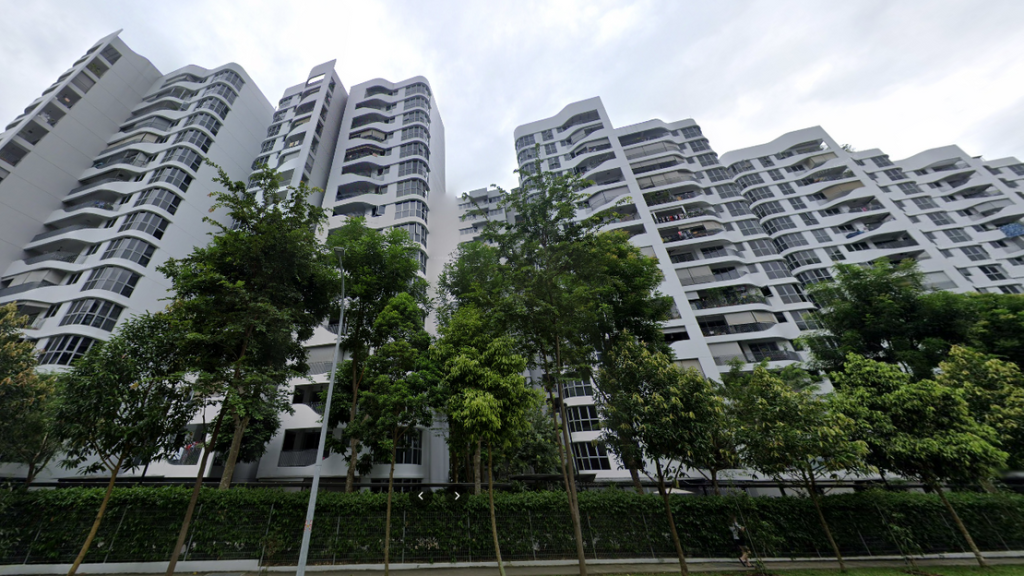“Will interest rates go down in 2025?” and ‘Will Singapore home loan rates fall?” are the two big questions Singaporean homeowners want to know. And the answer to both questions is a likely yes.
Mortgage rates in Singapore tend to move in tandem with the US Fed interest rate, which was cut three times from September to December 2024.
In the latest meeting on 29 January 2025, the Fed kept the interest rate unchanged in the 4.25% to 4.50% range and said there would be no rush to cut them again until inflation and jobs data made it appropriate. Here’s what we can expect from Singapore’s interest rate movements for the rest of 2025.
Mortgage Interest Rates in Singapore: What Can We Expect in 2025
After a series of interest rate hikes in 2023, the rates began to move sideways. The Federal funds rate remained unchanged since June 2023 and was cut for the first time in the latest September 2024 meeting. The Fed interest rates were slowly adjusted downward and now sit in the 4.25% to 4.50% range.
Singapore’s benchmark rates followed a similar trend from the second half of 2024 onwards, as seen in the table below of the 3M Compounded SORA rates. If you would like to look at the SORA rate today, you can do so on the Monetary Authority of Singapore (MAS) website.
Consequently, mortgage interest rates in Singapore have declined and Singapore home loan rates have continued to fall further. In February 2025, mortgage interest rates are hovering around 2.5% to 2.75% which is a far cry from the 4.0% and up mortgage rates in Singapore observed at the end of 2022.
Interest rate predictions in 2025 suggest that mortgage rates in Singapore will likely drop further this year. For example, fixed home loan rates are expected to fall below 2% over the next 1.5 years.
However, homeowners shouldn’t expect dramatic rate cuts as the Federal Reserve does not need to rush to lower interest rates, which indicates a slower pace of rate cuts. Singapore home loan rates will likely fall, but at a modest pace. However, if growth slows in the later part of the year, rates could be cut more quickly.
That being said, the answer to “Will interest rates go down in 2025?” and “Will Singapore home loan rates fall?” remains a likely yes.
What Can Homeowners Do to Manage Their Home Loans?
Mortgage rates in Singapore have fallen from their highs at the end of 2022, dipping below 3% from Q2 2024 onwards. This has led to an increase in mortgage loan refinancing activity as savvy homeowners take advantage of the fact that lower Singapore home loan rates are falling.
While the US Fed is ‘in no hurry’ to cut rates again, all signs point towards mortgage rates in Singapore moving downwards. If you haven’t done so already, consider repricing or refinancing your home loan.
For those seeking certainty, repricing or refinancing to a fixed-rate loan package can reassure you as your monthly mortgage payments will remain unchanged for some time.
Additionally, if you look at the available mortgage packages on the market, current mortgage rates for fixed-rate home loans are the better deal now. If you’re on a floating-rate home loan and you calculate your mortgage payment amounts, repricing or refinancing to a fixed-rate loan could mean potentially saving hundreds monthly on your home loan.
However, it’s worth noting that interest rates are likely to moderate further. You can reprice or refinance to a loan with a zero or a shorter lock-in period. That allows you the flexibility to take advantage of interest rate fluctuations and reprice or refinance when mortgage interest rates in Singapore fall further.
When Buying a New Home, What Should You Consider?
There are speculations of a more stable and growing property market going into the first half of 2025. Coupled with the favourable current mortgage rates, some may consider buying a new home.
Remember, the answer to “Will interest rates go down in 2025?” and “Will Singapore home loan rates fall?” is yes. PropertyGuru experts believes that interest rate predictions in 2025 bode well for those buying new property launches.
The current mortgage rates in Singapore may potentially reduce further as more progressive drawdowns on loans take place over time. In turn, the cost of financing would be lowered.
However, buying a new property is a big financial commitment and it is advisable to err on the side of caution. Ensuring enough room in one’s budget for higher home loan repayments is essential. Consider the worst-case scenario before taking out a home loan. You want to ensure you can still repay your loan if the worst happens (e.g. if you lose your job).
Another thing to note is that the home loan package with the lowest interest rate is not always the best choice. Sometimes, low promotional rates may seem very attractive, but it isn’t wise to calculate mortgage payment amounts only for the first year. Do the math for the overall costs over the lifespan of the package. The rates may increase sharply after the promotional period, or there may be other fees or less attractive terms and conditions.
Financing Your Property in 2025
If you’re considering buying a new home, repricing or refinancing your existing home loan or shaking up your investment portfolio with new property picks, always research your home loan options thoroughly.
Look for loans with features that match your individual needs. Remember, the ‘best’ home loan on paper may not be the ‘best’ for you. Good luck!
For more property news, content and resources, check out PropertyGuru’s guides section.
Looking for a new home? Head to PropertyGuru to browse the top properties for sale in Singapore.
Disclaimer: The information is provided for general information only. PropertyGuru Pte Ltd makes no representations or warranties in relation to the information, including but not limited to any representation or warranty as to the fitness for any particular purpose of the information to the fullest extent permitted by law. While every effort has been made to ensure that the information provided in this article is accurate, reliable, and complete as of the time of writing, the information provided in this article should not be relied upon to make any financial, investment, real estate or legal decisions. Additionally, the information should not substitute advice from a trained professional who can take into account your personal facts and circumstances, and we accept no liability if you use the information to form decisions.





